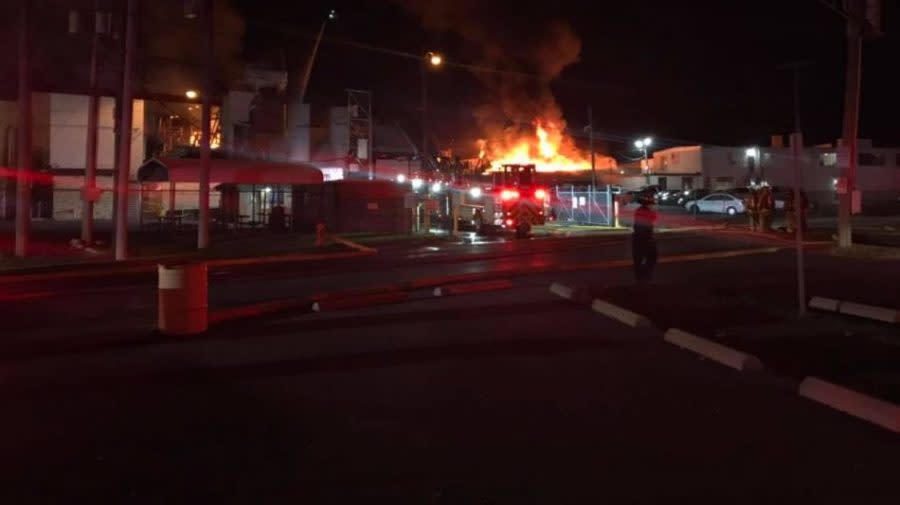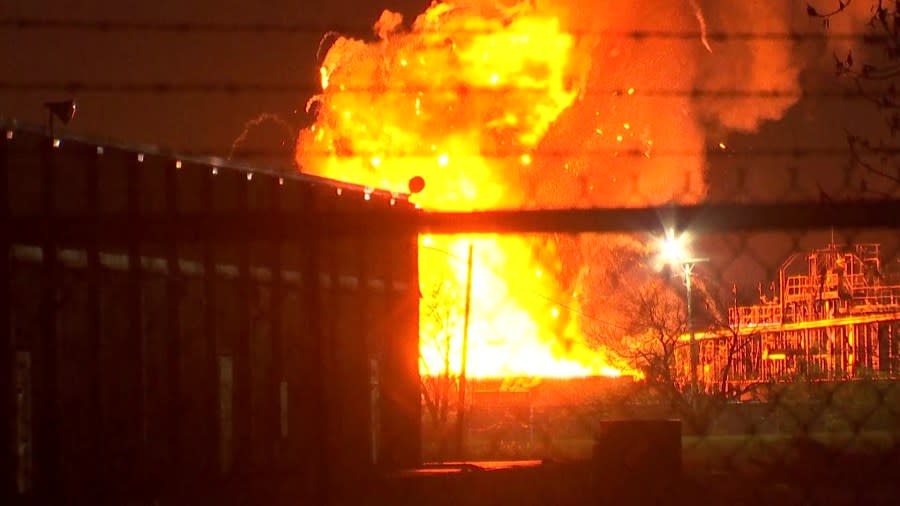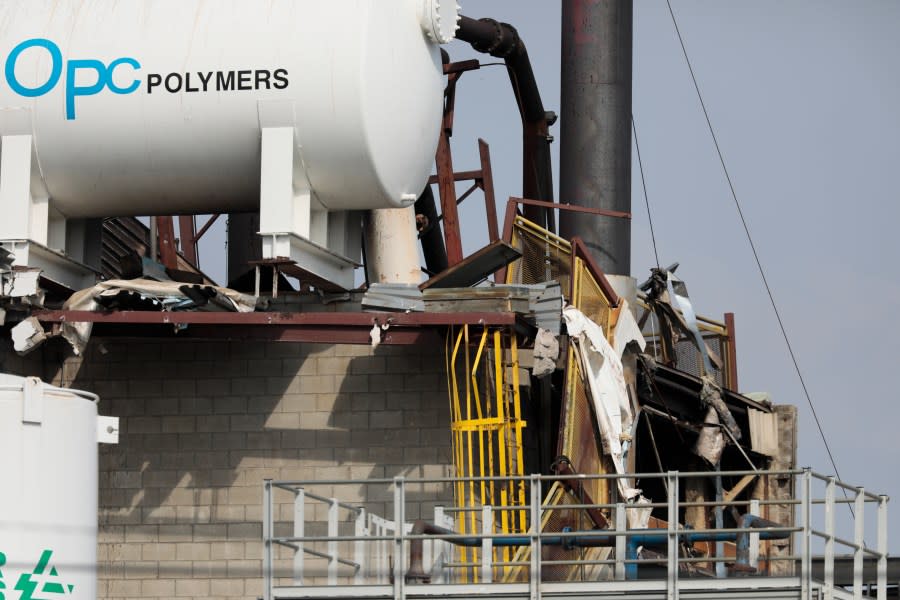Final report released on east Columbus paint plant explosion

View previous reports on the paint plant explosion in the video player above.
COLUMBUS, Ohio (WCMH) – The U.S. Chemical Safety and Hazard Investigation Board (CSB) released its final report on what caused a massive explosion at an east Columbus paint plant, and shared safety recommendations to practice in the future.
The explosion and resulting fires erupted on April 8, 2021, at the Yenkin-Majestic facility at the intersection of Leonard Avenue and Woodland Avenue in the St. Mary’s neighborhood. The blast killed one person, injured eight others and damaged several homes in the area.
According to the CSB report, the explosion happened when a mixture of petroleum solvent vapors and resin liquid leaked through the seal of a closed manway in an operating kettle, causing a flammable cloud of vapor to “quickly spread” throughout the plant. Those vapors, the report said, found an ignition source, which caused the explosion and resulting fires that lasted for about 11 hours.
Unsolved Ohio: What happened to Andy Chapman? Man missing for 17 years
Over 100 firefighters responded to the scene, as well as hazmat teams. It is estimated that the blast caused over $90 million in damages.
Firefighters are battling a second alarm fire at a paint factory. Firefighters are battling a second alarm fire at a paint factory. Damage is seen following an overnight explosion at the Yenkin-Majestic Paint plant, Thursday, April 8, 2021, in Columbus, Ohio. One person was killed and multiple others were injured in an explosion and fire Thursday at the paint manufacturer’s plant in Ohio’s capital city, firefighters said. Authorities in Columbus were investigating what caused the explosion shortly after midnight at the paint facility. (Joshua A. Bickel/The Columbus Dispatch via AP)
In its report, the CSB determined the following:
Yenkin-Majestic did not adequately ensure the mechanical integrity of a new 20-inch manway that was installed on a process vessel three months before the explosion.
Yenkin-Majestic did not have engineering controls to prevent the incident and relied on the operator to recognize and respond to the agitator turning off, without the assistance of an alarm.
Yenkin-Majestic did not have adequate safeguards to minimize the consequences of the incident – including effective flammable gas detection systems or alarms, response time or training and associated alarms to notify onsite personnel of a hazardous gas release.
The CSB further recommended that Yenkin-Majestic update mechanical integrity procedures, install flammable gas detectors that alert onsite plant personnel and that personnel wear flame-resistant uniforms in all operating areas that process flammable chemicals.
Ohio House passes bill to end marital rape loophole
The CSB also recommended that the American Petroleum Institute (API) develop specific design, construction, and alteration guidance for low-pressure process vessels in flammable and other highly hazardous chemicals and asked that the American Society of Mechanical Engineers assist in this development.
“The CSB has made recommendations both to Yenkin-Majestic and to the API and ASME to improve operation not only at the Yenkin-Majestic facility, but at any facility that deals with flammable and other hazardous chemicals at low operating pressures.” CSB Chairperson Steve Owens said.
Yenkin-Majestic has been subject to several lawsuits since the explosion, which resulted in the death of 44-year-old Wendell Light, a press room supervisor. Community members living near the plant reported the blast caused damage to their homes, including to foundations and walls, and expressed concern about the health impacts of possible air pollution.
Ohio trustee apologizes for using n-word during meeting but won’t resign
Andrew Smith, CEO of Yenkin-Majestic, told residents in the months after the explosion that testing showed no emissions were released into the community. This April, Columbus City Council entered into a contract with technology company Aclima to conduct an air quality study in the neighborhood.
That study is expected to last at least through 2024. Some neighborhood residents, and their attorneys, told NBC4 in April that the city should have commissioned such a study years ago, when the explosion occurred.
For the latest news, weather, sports, and streaming video, head to NBC4 WCMH-TV.




